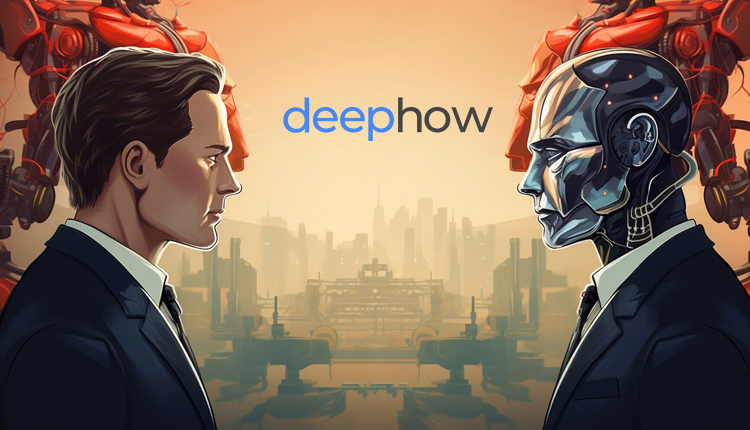The persistent challenge of employee turnover plagues many industries, cutting deeply into productivity, quality, and ultimately, the bottom line. In an age where workforce dynamics are rapidly changing, companies that do not adapt their training and development strategies risk falling behind. According to the U.S. Chamber of Commerce, there are 1.5 million fewer Americans working today compared to February 2020, and a tight labor market and employee churn are top concerns for leading employers. An effective solution to reduce turnover and enhance employee engagement is the adoption of effective training technology. This method, when powered by AI and multimodal learning, particularly through video, represents a transformative leap forward in how companies nurture and retain talent.
Understanding the High Cost of Employee Turnover
Employee turnover is costly. It’s not merely a human resources issue—it’s a critical business challenge that affects every level of an organization. When employees leave, productivity stalls, knowledge is lost, and morale often suffers. With retirement at an all-time high, employers are tasked with doing everything they can to retain talent and their tacit knowledge.
This turnover can lead to decreased quality in products or services, which affects customer satisfaction and, eventually, profitability. Personalized training powered by technology can address these issues by aligning the development of skills with the needs and potential of each employee, thus fostering a stronger, more engaged workforce.
Catch more HRTech Insights: HRTech Interview with Keith Bigelow, Chief Product Officer, Visier
The Power of Personalized Training
Personalized training acknowledges that each employee has unique skills, strengths, and learning paces. By customizing training programs to individual career goals and competencies, companies demonstrate a genuine investment in their employees’ professional growth. This approach not only boosts job satisfaction but also enhances performance by ensuring employees are well-prepared and confident in their roles. A recent study highlights that 39% of employees in the U.S. see growth potential as a crucial element of job satisfaction. By focusing on personalized training, companies can meet these expectations, increasing retention and attracting top talent.
Leveraging AI for Enhanced Learning Experiences
The modern workplace demands modern solutions, and AI-powered technologies are at the forefront of this transformation. One of the most innovative applications is AI quizzing, which leverages generative AI to create real-time assessments from training video content. This technology enables personalized learning experiences that adapt to the pace and progress of each learner. It continuously verifies and assesses an employee’s understanding, ensuring that the training is effective and meets its objectives.
AI-powered quizzing tools provide immediate feedback, allowing learners to understand their strengths and areas for improvement swiftly. This feedback loop helps in correcting misconceptions and reinforcing knowledge, significantly improving the retention of information. Moreover, these tools can identify when an employee is ready to advance their skills or take on more responsibilities, aiding managers in making informed decisions about career progression.
The Role of Multimodal Training
Multimodal training incorporates various formats—videos, written instructions, quizzes, and interactive content—to cater to different learning styles and preferences. Video, in particular, plays a crucial role due to its ability to demonstrate procedures, narrate sequential tasks, and visually engage learners. When combined with AI technologies, video becomes a powerful tool for delivering personalized training that is both scalable and impactful at a significantly lower cost.
Videos can be paused, rewatched, and interacted with at the learner’s convenience, providing flexibility that traditional training methods often lack. This dynamic approach ensures that every training session is efficient and effective, maximizing learning outcomes and minimizing downtime.
Training based on needs analysis contributes to a high level of employee satisfaction and low turnover rates, which further proves that employee satisfaction and loyalty do not rely on compensation and other benefits but also on opportunities for growth provided by organizations. Effective training also helps employees develop a positive attitude toward learning and improving proficiency, which results in enhanced productivity and competitiveness in the workplace and the organization as a whole.
Strategic Benefits of Adopting AI-Powered Multimodal Training
Adopting AI-powered multimodal training provides strategic benefits for businesses. It not only reduces the costs associated with employee turnover but also builds a more skilled and competitive workforce. Companies that invest in such advanced training technologies signal their commitment to innovation and employee development, which enhances their reputation in the industry and helps attract high-caliber candidates.
Furthermore, by continuously updating training programs based on AI-generated insights, companies can keep pace with industry changes and technological advancements, ensuring their workforce remains at the cutting edge of skills and knowledge.
The integration of AI-powered personalized training, particularly through multimodal learning platforms that emphasize video, is more than a trend—it’s a strategic imperative in today’s competitive market. Businesses looking to reduce turnover and foster a robust organizational culture should consider leveraging these advanced technologies to enhance their training programs. The result is a more engaged, satisfied, and competent workforce, poised to drive the company’s success well into the future.
Read More on Hrtech : HRTech Interview with Andrew Considine, Chief Technology Officer at Helios
[To share your insights with us, please write to psen@itechseries.com ]

